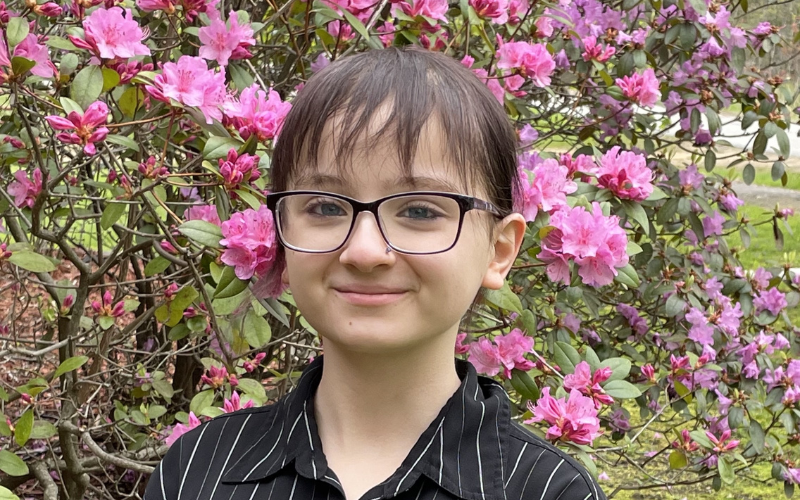
By: Erin Weller
Paris Prinsen can’t remember the day she was diagnosed with neuroblastoma.
She was an infant at her diagnosis, and while she does not remember the full body radiation and chemotherapy she received, her diagnosis is something she can never forget. “We’re constantly worried,” she said. Every time she experiences a symptom of something, she wonders, “Is this normal or is it because of the cancers I’ve had in the past?”
Experiencing such rigorous treatment so early in life stunted her growth, and caused a slew of side effects as she grew up – including the development of a second cancer.
Paris was 11 when she was diagnosed with osteosarcoma, a type of bone cancer. This time, her treatment involved chemotherapy and hip surgery to remove the tumor. Not only did Paris have to learn how to walk again, but she also struggled with a weakened immune system, panic attacks and nausea. Her movement was severely impacted and even today, she has difficulty walking. One of her legs is shorter than the other, which puts both a physical and emotional strain on her. “I shouldn’t be embarrassed because it’s not like I had a choice,” she said.
Paris still goes to the oncology clinic for routine patient visits. And she is also a student at Massachusetts College of Pharmacy and Health Sciences. Paris is studying the cancer that threatened her life and livelihood. She humbly describes it as how she’s “living day by day.”
Paris decided to use her experiences and education for the good of others as the recipient of a Pediatric Oncology Student Training (POST) grant, funded by Alex’s Lemonade Stand Foundation (ALSF).
This summer, Paris worked on understanding what genes control cells in neuroblastoma with mentor, Dr. Adam Durbin, at St. Jude Children’s Research Hospital in Memphis, Tennessee.
“I was able to get an early view on what research is like,” Paris explains while delving into the ins and outs of conducting research as an undergraduate. Dr. Durbin’s lab identified two cells resistant to chemotherapy within the same tumor and Paris supported the work towards uncovering how these cells interact to cause a tumor to relapse – information that could help to make neuroblastoma more curable.
The POST grant provided Paris with her first field experience, and she knows it won’t be her last. As Paris continues her education, she is determined to build a successful career in childhood cancer research, knowing that all research has value. “New information is found every day. And I think that’s better than the day prior,” she said. “All of this helps constitute and build to that knowledge reservoir about cancer and how to go about treating it.”
Paris is eager to bring a unique patient perspective to her work, so she can help change the narrative for other kids with cancer. “I hope by doing this research, I can help prevent some of these things from happening to patients. Cancer treatment takes a toll on everyone, and if there’s a way that I could prevent something like that from happening so people can pursue whatever they want without limitation, then I’d be happy to do so,” she said.

